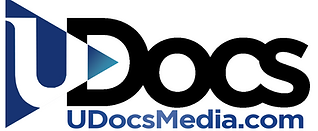Enhancing Your Ethical Practice as a CPA: 10 Essential Tips
- kirill kharlip

- Jun 10, 2023
- 3 min read
Updated: Jul 17, 2023
[INTRODUCTION]
In today's complex business landscape, ethical decision-making is more crucial than ever, particularly for Certified Public Accountants (CPAs). The AICPA’s Code of Professional Conduct outlines the ethical obligations of CPAs, but living these principles out in day-to-day work often requires dedicated effort and constant learning. A 2021 survey from the Institute of Business Ethics reveals that 85% of employees agree that their organization's ethical performance impacts their decision to stay with the company (source: IBE Report 2021). With this insight, it becomes abundantly clear how vital it is to continuously sharpen our ethical skills as CPAs.
Here are ten strategies, each with an actionable tip and common mistake to avoid, that can support you in this journey.
[1. COMMITMENT TO CONTINUOUS LEARNING]
***Tip***: Be proactive in attending training programs, workshops, and webinars that emphasize business ethics and ethical decision-making.
***Mistake to Avoid***: Never assume that once you've passed your CPA examination, the learning stops. Ethics is a dynamic field and demands consistent self-improvement.
[2. STRONG PROFESSIONAL JUDGEMENT]
***Tip***: Enhance your decision-making abilities by studying past ethical dilemmas and the resulting outcomes.
***Mistake to Avoid***: Neglecting to seek advice from colleagues or mentors when faced with complex ethical situations.
[3. UNDERSTANDING OF APPLICABLE LAWS AND REGULATIONS]
***Tip***: Stay updated with changes in laws and regulations relevant to your field of expertise.
***Mistake to Avoid***: Overlooking the importance of keeping up-to-date with changes in standards, regulations, and laws can put you and your clients at risk.
[4. ACCOUNTABILITY AND TRANSPARENCY]
***Tip***: Always maintain accurate, complete records and provide transparent information to your clients.
***Mistake to Avoid***: Never suppress, alter, or withhold crucial information, even when it may not be favorable.
[5. RESPECT FOR CONFIDENTIALITY]
***Tip***: Familiarize yourself with secure methods for storing and transmitting sensitive client information.
***Mistake to Avoid***: Sharing confidential information without the client's consent is a serious breach of trust and professional ethics.
[6. FAIRNESS AND HONESTY]
***Tip***: Treat every client with fairness, irrespective of their size or influence.
***Mistake to Avoid***: Dishonesty or bias in client dealings not only undermines your reputation but also breaches ethical standards.
[7. MAINTAINING OBJECTIVITY]
***Tip***: Refrain from engagements that can compromise your professional objectivity.
***Mistake to Avoid***: Allowing personal relationships or interests to influence your professional judgment can harm your credibility.
[8. INTEGRITY IN ACTIONS]
***Tip***: Be consistent in upholding ethical principles, even in challenging situations.
***Mistake to Avoid***: Lowering your ethical standards in the face of adversity can have long-term negative effects on your professional life.
[9. CULTURE OF ETHICS IN THE ORGANIZATION]
***Tip***: Promote an ethical culture in your organization, leading by example.
***Mistake to Avoid***: Ignoring unethical behavior or practices within the organization creates a negative ethical environment.
[10. BALANCING STAKEHOLDER INTERESTS]
***Tip***: Balance the interests of different stakeholders while adhering to professional standards and regulations.
***Mistake to Avoid***: Prioritizing the interests of one stakeholder group over others can lead to ethical conflicts.
[CONCLUSION]
Becoming a model of ethical practice as a CPA is not a destination but a journey. It requires our continuous commitment to learning and development, the courage to make tough decisions, and the wisdom to balance varying stakeholder interests. It's about understanding and complying with laws and regulations, demonstrating accountability and transparency, and always maintaining objectivity and integrity.
This might seem like a tall order, but the dividends it pays in fostering trust, respect, and long-term client relationships are significant. Remember, when we create an ethical environment within our organizations and practice fairness and honesty in our dealings, we are not only fulfilling our professional responsibilities but also contributing to a larger ethical business culture.
We are more than just accountants, auditors, or tax consultants. We are custodians of public trust. The way we handle ethical dilemmas and challenges plays a crucial role in shaping perceptions of our profession. The ethical standards we uphold become the benchmarks for future CPAs.
Stay committed to your journey of ethical excellence, knowing that every right decision you make, every fair treatment you give, and every confidential piece of information you protect contributes to your growth as a competent and ethical CPA.
Let's continue to challenge ourselves, learn from our experiences, and support each other as we navigate the complexities of our profession. After all, it's through these collective efforts that we can truly enhance our ethical skills and foster a more robust, trusted, and ethical profession.
Thank you for reading. If you found this information valuable, please like, share, and comment. Let's start a conversation and learn from each other's experiences in enhancing ethical practices as CPAs.

Comments